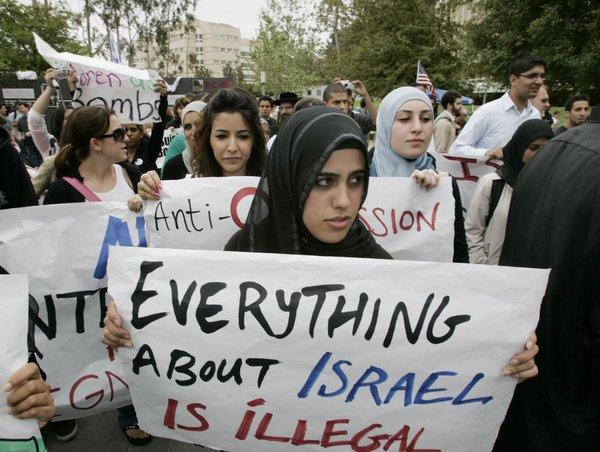The wonderful and terrible thing about journalism is that it frequently presents truth with a subtle hint of opinion.
Regardless of how a journalist writes—through his choice of subject matter, his focus on details or lack thereof, and his ability or inability to truly and intrinsically understand the circumstances of the people and ideas behind his news story—his voice will most likely reflect ever so slightly in his writing. Likewise, a newspaper’s objectives will often shine through the articles they publish and the journalists they promote.

Providing an inside scoop into the world of journalism, former AP correspondent Matti Friedman testifies to the continuous bias against Israel, which presents the Jewish state as the alleged bad guy in the media’s Middle East narrative. Throughout his article in The Atlantic, Friedman expresses what he witnessed among the tendencies of journalists who come to discover and reveal the truth about the Middle East while reporting in Israel. “The media bias against Israel has become part of a progressive Western zeitgeist,” he argues. And journalists fall for it constantly.
For the lack of understanding Israel sufficiently or the need to fulfill writing quotas or perhaps the desire to make the right connections in the journalism community of Israel, Friedman writes that “Many journalists choose to strengthen the ongoing narrative of Israel as a colonialist regime against Arabs rather than dig for gritty, nuanced stories.”
Another former AP correspondent, Mark Lavie, confirms Friedman’s claim that the media, in this case the Associated Press, has an anti-Israel, pro-Palestinian bias. Editors of AP chose to exclude an article about how Israeli Prime Minister Olmert offered a peace treaty, which was then rejected by Palestinian leadership. After calling out the AP on this suspicious act, Friedman and Lavie ceased to work for the Associated Press.
Although this trend of journalists reporting on Israel through such a slight perspective is very worrisome, it is also very concerning that Haaretz, Israel’s very own leading newspaper, is whitewashed by its own translators.
In an ongoing project, Haaretz, Lost in Translation, Director of CAMERA’s Israel office, Tamar Sternthal, has been thoroughly reviewing and comparing the Hebrew and English versions of the internationally known newspaper since 2012. She continues to expose the the subtle bias of Haaretz articles as they are translated from Hebrew to English.
Translating is a tricky job. A translator must relay ideas and details, while also writing fluidly. Changing a few words here and there can be a just decision or perhaps a translator’s honest mistake. However, as Tamar Sternthal reveals, Haaretz has an unfortunate record of not relaying the truth and excluding critical details in subsequent translations from Hebrew to English.
Haaretz has corrected mistakes prompted by Rosenthal in the past. However the newspaper has yet to fully address their translating staff’s tendency to follow after the anti-Israel bias of international media.

As the saying goes, the pen is mightier than the sword, and the media’s anti-Israel slant does not help Israel’s efforts for peace, nor does it levy important criticism against Israel’s enemies who promote terror. Unfortunately, just as anti-Semitism is growing on campus, anti-Zionist tendencies are continuing in the media and to Israel’s dismay, the problem is encouraged by Israel’s own media outlet Haaretz. As CAMERA works hard to confront journalists and editors’ inaccurate contributions, news outlets need to reflect on their priorities. Further, journalists need to asks themselves: are they really providing readers with the honest truth?
Contributed by CAMERA Intern Penina Simkovitz.

